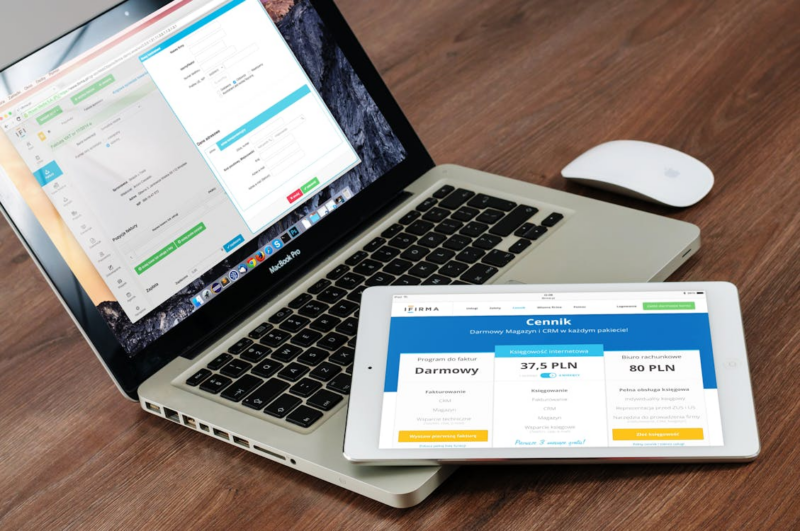Windows DNS provides the service needed to translate domain names from human-readable to machine-readable. For example, www.windows7dots.com is translated to 8.3.0.1. However, many people have found that Windows DNS can be slow and inefficient. In this article, we will teach you how to change Windows DNS from 2.2.2.2 to 1.1.1.1.
We wrote a post a few weeks ago for a few reasons: a) a new Windows 10 feature coming out in a month or so b) a very annoying issue that a lot of people have been experiencing.
What if we told you that you can change the DNS servers assigned to your computer (on by default) and instantly improve your Internet experience and browsing speed? What if we told you that you can do this without having to pay any money and without having to reinstall third-party software? Well, we’ve got some good news for you! After testing and trialing a number of free and paid DNS server tweaks, we’ve finally found one that works like a charm, without costing you a dime. You can then use this DNS server to change your DNS servers on Windows 7, Vista, and XP to 1.1.1.1, which is the fastest and best option for your PC.
Change the DNS server in Windows to 1.1.1.1. for Faster Internet in 8 Easy Steps – Did you know there’s a DNS service that’s three times quicker than Google (8.8.8.8)? Cloudflare’s DNS (1.1.1.1) claims a response time of 10.95 milliseconds, implying that your internet will be considerably more responsive.

2021: How to Update Windows DNS to 1.1.1.1 for Faster Internet
Furthermore, since Cloudflare does not sell user data, their DNS is more secure and private.
Switching to this DNS setup is not harmful for Windows users.
In only 3 minutes, you can convert your Windows 7/8/10 DNS to 1.1.1.1.
Change Windows DNS to 1.1.1.1
1. Open the Start Menu, look for Control Panel, and launch it.
2. Next, choose Network and Internet.

3. Select Network and Sharing Center from the drop-down menu.
4. Select Change adapter settings from the left menu.
5. Select Properties from the right-click menu of the internet network you’re using.
6. Click Properties after selecting Internet Protocol Version 4 (TCP/IPv4).
7. Examine the Fill in the following DNS server addresses using the following DNS server addresses option:
1.1.1.1 is the preferred DNS server; 1.0.0.1 is the alternate DNS server.
8. Once you’ve clicked OK, restart your browser to experience super-fast internet with minimum latency.
DNS questions and answers from Cloudflare
After you’ve installed DNS 1.1.1.1 on your Windows PC, there are a few things you should know.
What exactly is 1.1.1.1?
Cloudflare’s 1.1.1.1 DNS resolver is intended to be very fast, safe, and private. This method was developed in collaboration with the non-profit APNIC. As a result, the service is completely free for anybody at any time.
What exactly is DNS?
The Domain Name System (DNS) converts website domains to IP addresses so that the browser can display the requested website page.
Why should I use 1.1.1.1 instead than 1.1.1.2?
The majority of DNS from internet service providers (ISPs) is very sluggish. Furthermore, the lack of encryption renders data exchanges unsafe and vulnerable to data leaking.
ISPs may also gather user activity data without the customers’ knowledge for subsequent resale.
On Android and iOS, how do you utilize 1.1.1.1?
Fortunately for mobile platform users, DNS 1.1.1.1 is currently accessible as a free app on the Play Store and App Store.
Is DNS 1.1.1.1 usually quick to respond?
To Akamai, 1.1.1.1 is quicker on average than major brands like Google and Verisign. The complete comparison may be seen on the DNSperf website.
What are the advantages of having a reduced latency?
Lower latency (PING) indicates that there is less time between the request and the server’s response. When playing online games, for example, reduced latency enables you to avoid lag and play more smoothly.
Online examinations, video chats, video streaming, data transfers, and other activities that need minimal latency are also beneficial.
Why is it still sluggish while I’m using 1.1.1.1?
Fast internet is defined by a number of factors, including latency. More requirements must be fulfilled, such as storage media read/write speeds and internet bandwidth.
As a result, 1.1.1.1 will only have an effect if your internet bandwidth is sufficient.
How is your internet connection now that you’ve switched to 1.1.1.1?
Is it more responsive than before?
Write about your own experience!
Continue reading:
Don’t forget to bookmark and return to.com every day because you’ll discover the most up-to-date Technology information here, including How-to Guide Tips & Tricks. Blogging, digital marketing, Android rooting, social media games, and so on. Best wishes.
If you’ve ever had a slow internet experience, you know how frustrating it can be. The problem is that most internet service providers use their own DNS servers to work out the details of what your ISP calls your requested website or IP address. This means that if you change your DNS server to use the open DNS service 1.1.1.1, you’ll be able to get a faster response time for websites such as Google. But if you don’t know what you’re doing, this could land you in trouble with your ISP.. Read more about 1.1.1.1 help and let us know what you think.
Frequently Asked Questions
How do I change my DNS to 1.1 1.1 Windows?
You can change your DNS settings in the Windows Control Panel.
Can changing DNS make Internet faster?
Yes, changing your DNS can make the internet faster.
Does 1.1 1.1 Make your Internet faster?
1.1 is the speed of light, which is a constant. It cannot be increased or decreased.



















